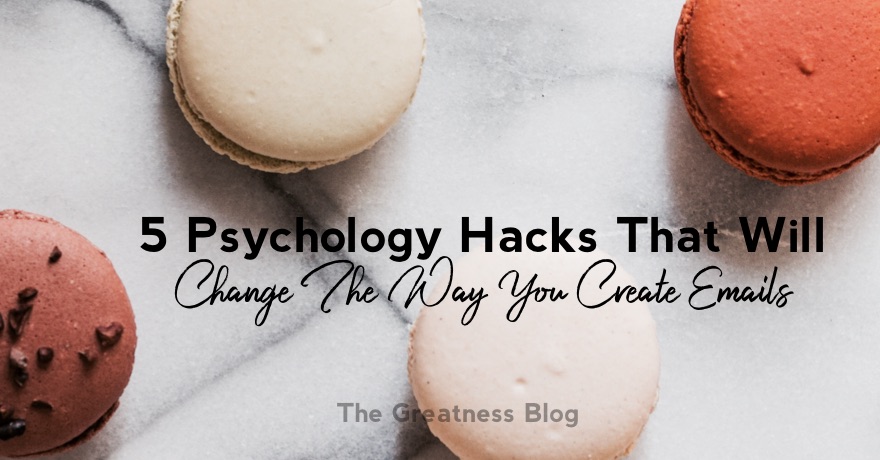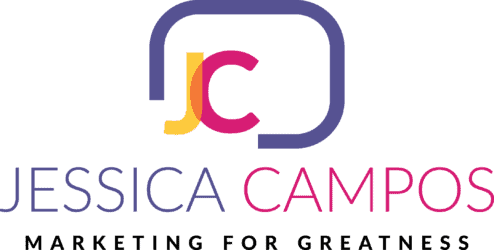5 Psychology Hacks That Will Change The Way You Create Emails
Are you looking for marketing strategies to grow your business? How about email marketing? I was pretty convinced that email marketing was not dead until I had access to some shocking stats that you’re about to discover (get ready to delete tons of emails).
I have no intention to start a battle against marketers who defend that emails are not dead. According to the Communicator Email Benchmark Report 2016 74 trillion emails are sent every year. And the numbers keep going up, with 28% more email sent in 2016 than in 2015. Email marketing can’t be dead if the number is that high… Well, you might change your opinion when you see what other numbers I found.
We are dealing with a digital economy that mostly communicates via social media and business owners can’t ignore this fact. However, their challenge is to engage with those users and turn them into potential customers. The main question is: do we need really need to build an email list if we are in front of our audience on social media?

While I am of the opinion that social marketing and email marketing are like apples and oranges, I believe that email marketing has suffered a drastic impact on the purpose, content, and value after the social media boom.
If you are part of my email list, you might have noticed that I decided to STOP all the campaigns. In fact, I got rid of my Aweber account with over 10,000 contacts. Yes. Gone! I started with GetResponse and have been very careful with my automation. It was not working and I started to feel that I was wasting my time. Yikes.
Instead, we are using more Facebook Messenger and the response and engagement have been much rewarding. Not a surprise, when you see the comparison between email and messenger.

Email isn’t dead, but marketers are using emails differently.
Let’s go through the 5 Psychology Hacks That Will Change The Way You Create Emails.
Hack Number One: Relevant Subject
You probably were told to create a free offer or a newsletter so that people that were interested in receiving information related to that topic, could stay in touch with you. If this is your current email marketing strategy, you might want to change it.
People Mostly Care About Themselves, says an article published by Lifehack.org. People aren’t thinking about you. A damaging myth to buy into is believing the amount of time you think of yourself compares to the amount of time others think of you. In reality, they are nowhere close.
In the old days, you had a killer email marketing strategy if you were sharing experts secrets to your audience. I’m sure that you were told to make subject lines like “5 Strategies to ___”, “The best of _____”, “7 Reasons to ____ “. And of course, the empathy lines like “I cried all night …”
While that approach might have given you some success, moving forward, you might want to consider making some adjustments in your subject lines.
Try this psychology hack and write subjects that are relevant to your audience. It’s not about YOU. It’s about them, which is one of The Golden Rules explained in my book, The Six Golden Rules of Social Media, Your Handbook For Endless Leads. Click here to download a free PDF version.
Hack Number Two: ONE Actionable Takeaway
Since we can even watch tv on Facebook these days, your emails need to be simplified to ONE actionable takeaway.

If you are a teacher, please I beg you to use this strategy and stop sending those newsletters with thousands of updates, reminders, activities… Parents love you, but they will love you more if you bring it to the essentials.
Since our brains are most of the time busy with self-directed thoughts, emails need to be simple and easy to remember. And if you want your audience to act on a due date, send them reminders.
Hack Number Three: Novelty
Anything that’s new, different or unusual is bound to catch our eye. A new phone, a new working environment, a new friend. Changing our hair color, wearing new clothes, visiting a new place. In fact, we can even be drawn to novelty without being conscious of it. Of course, this makes a lot of sense—we wouldn’t get much done if ordinary things captivated us constantly.
If you don’t have a robust content marketing strategy, there is a good chance that your emails are mostly promotional. You share your blog posts, your offers, your lifestyle experiences, your success stories… Do you see why this methodology isn’t working? You are doing what everyone else is doing so your audience can’t find anything new. Hack your emails today applying NOVELTY!
How the Brain Handles Novelty
There’s a region in our midbrain called the substantia nigra/ventral segmental area or SN/VTA. This is essentially the major “novelty center” of the brain, which responds to novel stimuli. The SN/VTA is closely linked to areas of the brain called the hippocampus and the amygdala, both of which play large roles in learning and memory. The hippocampus compares stimuli against existing memories, while the amygdala responds to emotional stimuli and strengthens associated long-term memories.
It’s been thought before that novelty was a reward in itself, but, like dopamine, it seems to be more related to motivation. Researchers Bunzeck and Düzel tested people with an “oddball” experiment that used fMRI imaging to see how their brains reacted to novelty. They showed the subjects images such as indoor and outdoor scenes and faces with occasional novel images (oddballs) thrown in.
This is similar to what might happen during the repetition of flashcards or educational material. Only the completely new information stands out among a group of overly familiar objects or images.
How Novelty Motivates Us
You’ve probably heard about dopamine before, and its effects on the brain. It’s often touted as a “reward chemical” or part of the brain’s “reward center,” but more recent research has shown that, like a novelty, it’s actually more closely related to our motivation to seek rewards rather than being a reward itself. Animal studies around the brain’s reaction to novelty have suggested increased dopamine levels in the context of novelty. So the brain reacts to novelty by releasing dopamine which makes us want to go exploring in search of a reward.
Hack Number Four: Our brains are always searching for answers
Researchers say that we are tempted to seek out missing information when the outcome is uncertain, even if it may cause us harm. Apply this psychology hack and share your content using a challenge. Challenge how people think. Activate their imagination. Make a statement even when people think that you’re crazy.
If I tell you that you can outperform Amazon’s prices all the time using this simple trick – click here, 99% of the time, you will click the link! How can you apply this example to your next emails?
Hack Number Five: Common enemy
Sociologist Georg Simmel argued that we create common enemies because it unites us with groups of people we believe to be like us. It also allows us to create an explanation for why bad things happen in the world. And remember we are meaning-seeking creatures, so we create enemies to ensure that the world makes sense again. Otherwise, why would bad things happen to good people?
People have even gone to war to stand up against a common enemy, which is why this is a very powerful marketing tactic.
Think about something that your competitors and make a stand against. This will highjack your email opening rate!
What’s next? Unlock Your Access to Our Exclusive Facebook Group. Just by joining you get access to high-value social media hacks, webinars, books, experts secrets, and more.
Now that you know these psychology hacks, implement at least ONE right away. Notice how your audience reacts. Don’t be predictable. Change the rhythm. Surprise them! Let’s keep this conversation in our Facebook Group!
It’s your turn now!
Until our next article.
Jessica
About Jessica Campos
 Jessica Campos, JD, BBA is the expert on The Social University. She’s the co-founder of Marketing for Greatness, Inc. and author of 5 books, including her latest: “The 6 Golden Rules of Social Media: The Handbook For Endless Leads”.
Jessica Campos, JD, BBA is the expert on The Social University. She’s the co-founder of Marketing for Greatness, Inc. and author of 5 books, including her latest: “The 6 Golden Rules of Social Media: The Handbook For Endless Leads”.
In her keynotes and workshops, Jessica entertains, educates and empowers audiences so they can remove all fears around marketing with authenticity and using the golden rule as part of their success formula. Clients include: Liberty Mutual, e-Women Network, TEDx New Bedford, Civility Consulting, founders of The School of Protocol in Austin, Texas, Golden Arm Media, Speak So They Listen, LLC. Jessica also teaches staff and students on how to bring social media values to the education field.
Her business background includes Attorney for Banco Popular de Puerto Rico, Attorney for Banco Santander and counseling the accounting department of RFR Realty, a commercial property management firm in Manhattan, NY. Throughout her e-commerce career, Jessica has been recognized as a Top Producer and international leader.
Jessica continues to be a trusted marketing and leadership advisor for executives and entrepreneurs. Her reach includes a monthly WebTV show, edgy blog, and active social media channels. She’s a go-to expert for media outlets, including Univision Austin, Smart Hustle Magazine, Executive Women in Texas Government, and hundreds of online communities.
When she’s not creating Marketing for Greatness, Jessica is a wife and mother of 4 children. Jessica’s enthusiastic personality is game for all things involving fitness, wine, and food. She lives in Austin, Texas with all her husband, Tom, who is one of her sales performance mentors, their children and their hyper, cute and lovely, Pit-Lab, Leo.

